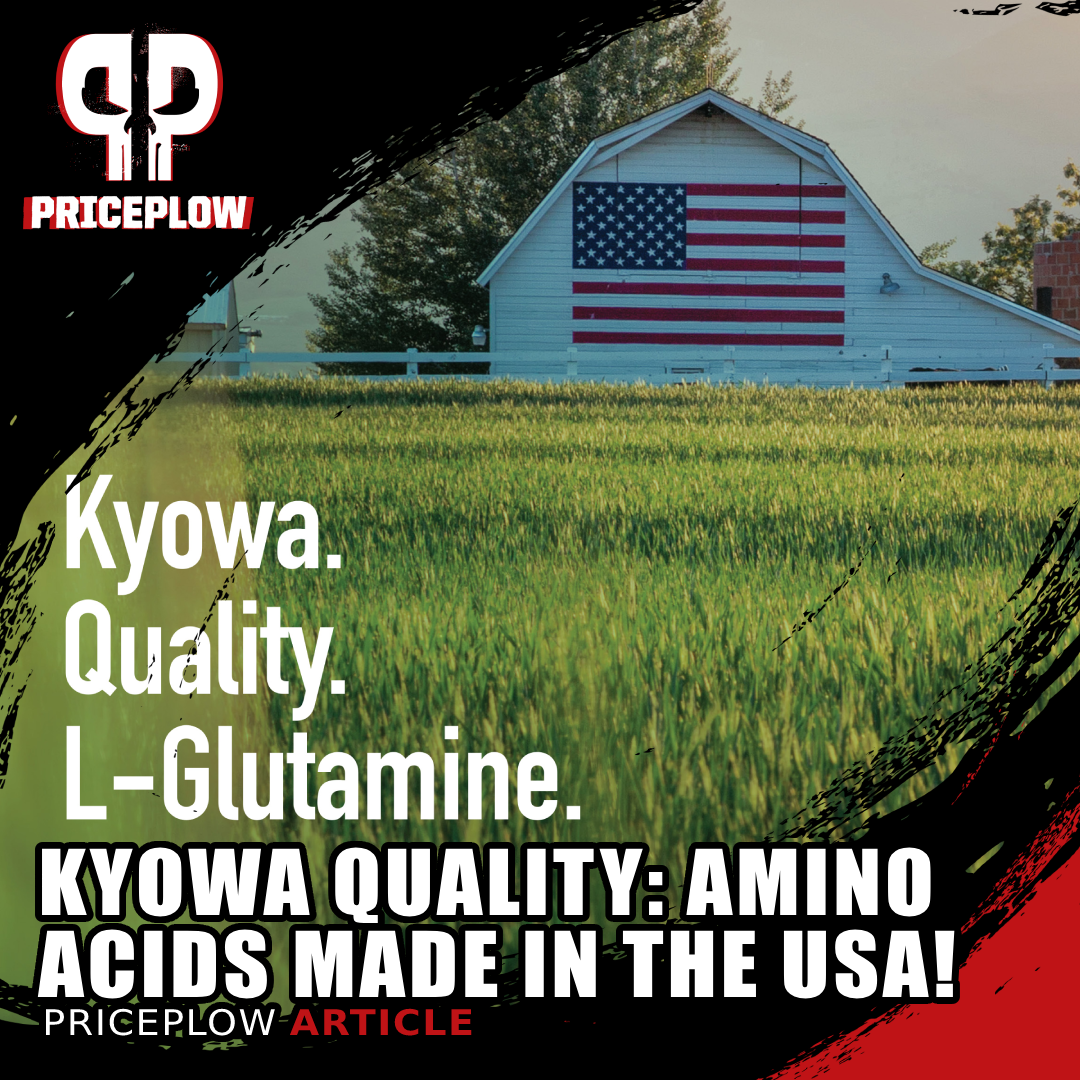
Looking for dietary supplement ingredients that are made in the USA?! There aren't many, but Kyowa Hakko USA has citrulline, arginine, and glutamine!
Amino acids have become ubiquitous in the supplement industry. As the constituents of proteins, amino acids are critical for optimal functioning.
Amino Acid Supplements: From EAAs to BCAAs and Back Again
The trend in the sports and active nutrition part of the supplement industry began with early research on essential amino acids in 1999,[1,2] then moved to the branched-chain amino acids (BCAAs): leucine, isoleucine, and valine.
While BCAAs experienced a boom a couple of decades ago, full-spectrum essential amino acids made a comeback, as they encompass the three BCAAs plus all the other six aminos that the body can't synthesize itself, allowing for better health and body composition results.
Kyowa Amino Acids: Made in the USA
As with everything, formulating amino acids most effectively comes down to quality. It's easy to source powders of dubious quality from an overseas factory -- you can listen to some of the horror stories in PricePlow Podcast Episode #106 -- but brands that truly care about maintaining quality standards are better off sticking to trusted companies, and when possible, ingredients made in the USA.
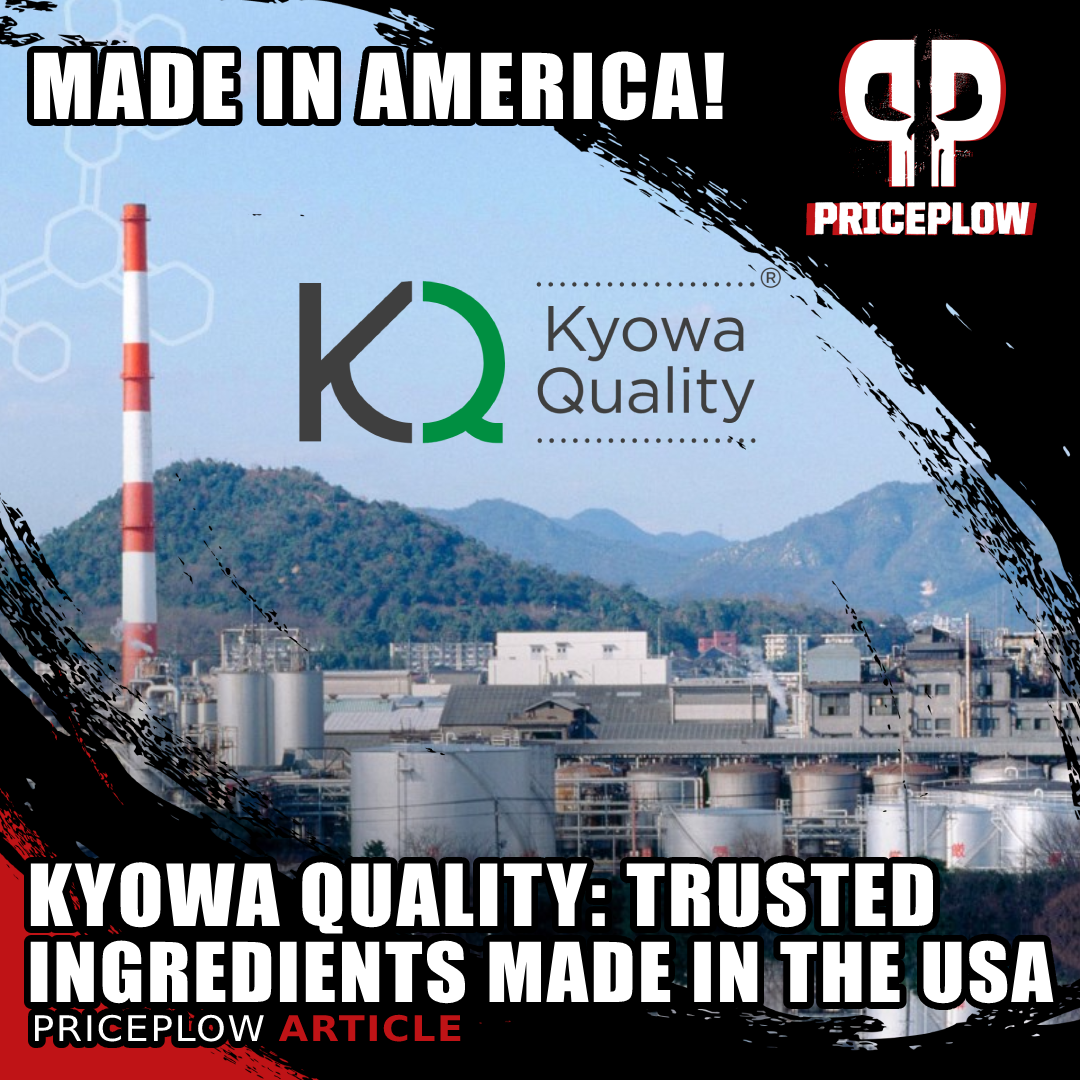
Kyowa Quality: Tested Dietary Supplement Ingredients Made in the USA! (BioKyowa)
While the EAAs listed above are going to be sourced overseas, there are some aminos made in the USA!
Kyowa Quality, a subsidiary of Kyowa Hakko, is an amino acid manufacturer with a facility right here in Cape Girardeau, Missouri. This reshoring of manufacturing helps to ensure you know exactly what you're putting in your body, as opposed to purchasing ingredients from foreign manufacturers. With standardized processes built around bacterial fermentation, Kyowa has managed to earn themselves a Generally Recognized As Safe (GRAS) designation.
We've covered many of Kyowa Hakko USA's ingredients like Cognizin citicoline and the Setria L-Glutathione in The Rock's ZOA+ Pre-Workout, but today, let's run through Kyowa's main amino acids: L-glutamine, L-arginine, and L-citrulline:
Kyowa's American-Made Amino Acids
-
L-citrulline
Citrulline is a key agent for boosting nitric oxide (NO) levels. When ingested, citrulline increases blood levels of arginine, the precursor to NO, thereby enhancing NO levels.[3] This leads to various physiological benefits, such as improved oxygen utilization for increased power,[4] prolonged athletic endurance,[5] reduced muscle soreness after workouts,[5] higher growth hormone production,[6] prevention of exercise-related protein degradation,[7] and accelerated muscle protein synthesis.[8,9]
A successful study using 2.4 grams!
A notable study by Kyowa Quality used a lower dose of 2.4 grams of citrulline, compared to the typically cited minimum effective dose of 3 grams, and observed significant enhancements in athletic performance.[11] The findings revealed that this dose of citrulline substantially raised blood NOx and arginine levels, leading to a notable decrease in time to complete the cycling trial, increased power output without significant changes in oxygen uptake, and improved markers of fatigue.
So while we generally state that 3 grams is the "clinical dose" of L-citrulline, it's actually 2.4 grams if you really want to get specific and use Kyowa Quality. We of course enjoy more when chasing greater blood flow, but 2.4 grams is after all clinically-supported.
-
L-glutamine
L-glutamine is an essential amino acid known for its significant role in supporting gut and immune health. Glutamine is key in mitigating gut atrophy,[12] particularly in cases requiring parenteral nutrition, where the gut typically atrophies due to bypassed digestive processes. Glutamine supplementation has been shown to significantly counteract this atrophy.
Kyowa Quality makes arginine, citrulline, glutamine, ornithine, BCAAs, and glycine - much of it available in the USA through BioKyowa
Glutamine's importance extends to maintaining the gut lining's selective permeability,[13] allowing nutrient absorption while blocking toxins and pathogens, thereby supporting overall immune function. It strengthens the gut's mucous lining,[14,15] enhancing innate immunity. However, a deteriorating mucosal lining can lead to leaky gut syndrome, where harmful substances leak into the body, triggering chronic inflammation. Glutamine consumption aids in restoring the integrity of this lining.[16,17]
Gut health and recovery
Over the years, glutamine was marketed for muscle building, because so much glutamine is in muscle tissue. However, research didn't pan out for that purpose. With that said, we're still big supporters of the amino acid, so long as it's marketed appropriately -- and for us, glutamine is primarily about gut health and secondarily for recovery and soreness. As long as this is the purpose, we're happy to see 5 or more grams of glutamine!
-
L-arginine
Cellucor C4 Ultimate WWE uses Velox, Kyowa Hakko's patented combination of citrulline and arginine.
L-arginine is a key amino acid that directly contributes to the synthesis of nitric oxide. As discussed above, when taking citrulline, it actually turns into arginine, which then transforms into NO through the action of the enzyme endothelial nitric oxide synthase (eNOS).
The preference for supplementing with citrulline over arginine is due to citrulline's higher oral bioavailability compared to arginine,[18,19] making it more effective for nitric oxide production.
However, arginine still holds significant value -- it doesn't need to be just one or the other:
Stack arginine with citrulline for added effects
Research indicates that a combination of citrulline and arginine is more potent than either amino acid alone in boosting NO levels, since the citrulline actually acts as an arginase inhibitor, preventing the breakdown of arginine.[10,20,21]
Therefore, for enhanced NO production, consider using Kyowa Quality's citrulline and arginine together – which Kyowa has conveniently solved for with their patented VELOX citrulline/arginine combination.[22-25]
Quality is Important
When it comes to dietary supplements, it can be difficult to know exactly what you're getting. Overseas manufacturing plants don't necessarily adhere to the same standards as do those based in the United States. Oftentimes, brands themselves may not know the precise quality of the ingredients they source.
With something as important as your health, you don't want to take any chances. Supplementation can be a powerful tool, but it has to be done correctly, and being confident in the sourcing is vital.
Kyowa Quality helps provide that security by producing their amino acids in the United States, and brands would do well to take note: safety is more important than ever.
We look forward to seeing an American Made formula -- even if it's just a citrulline/arginine combination supplement -- that's sourced entirely from the United States. What brand will want to do it first?!
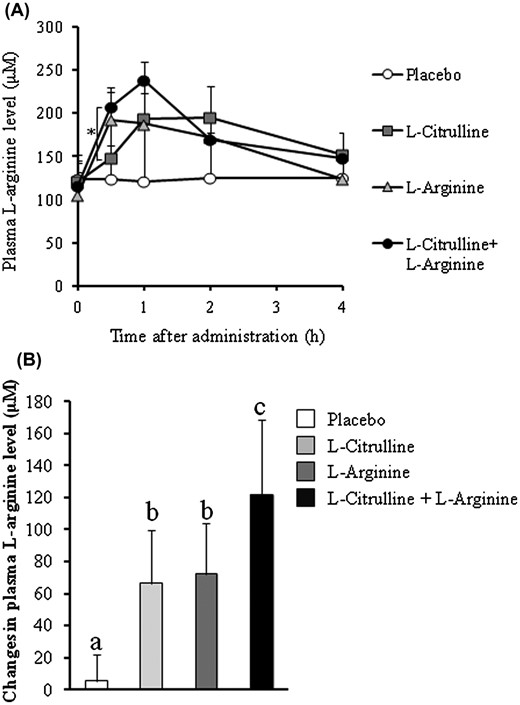
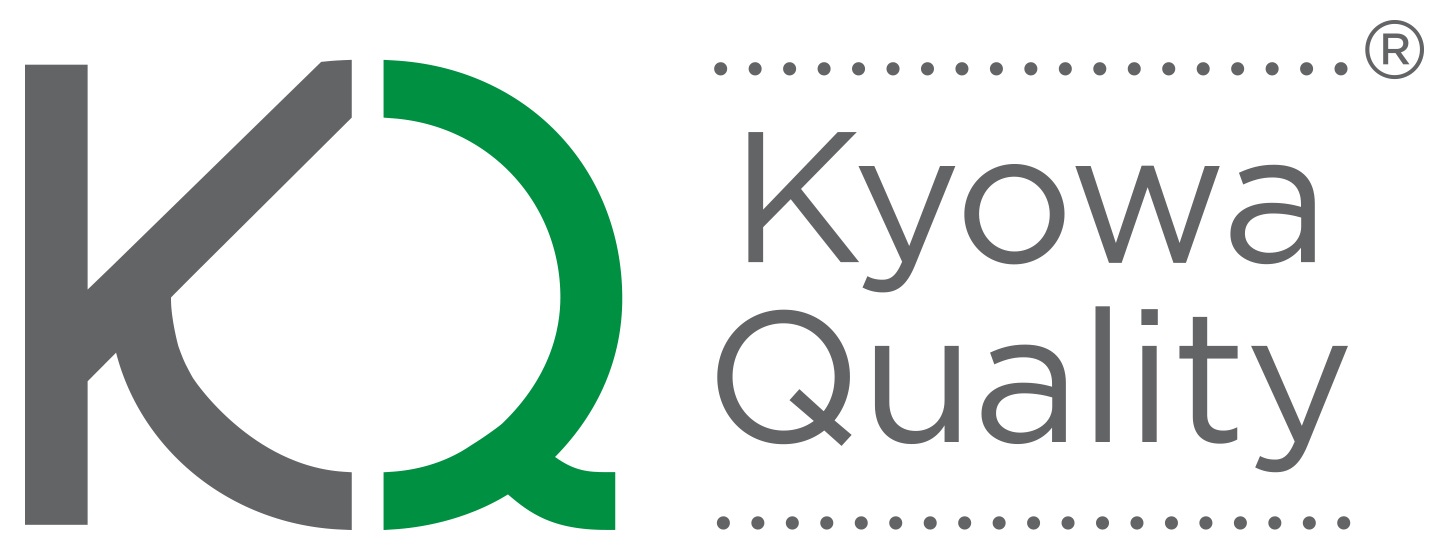
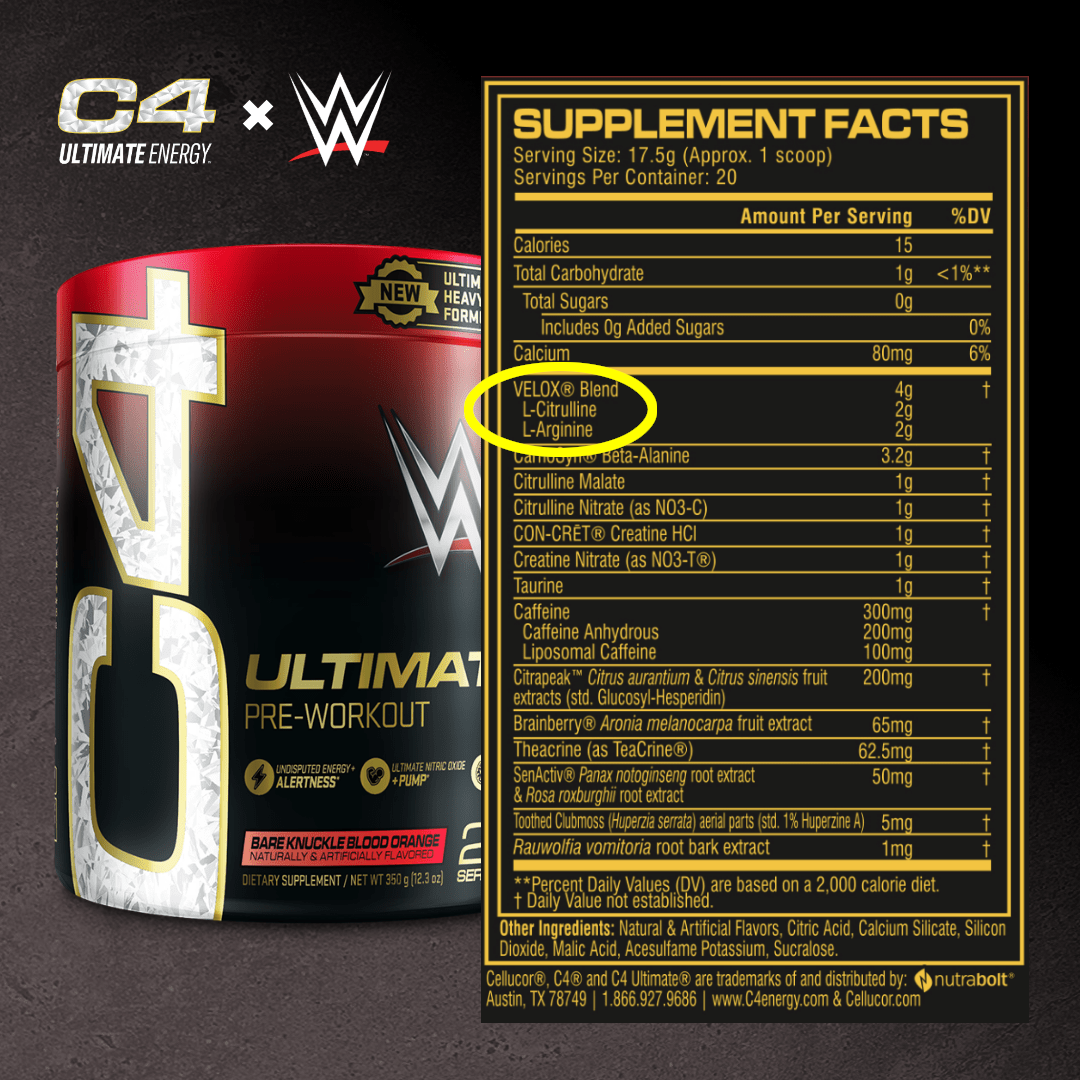
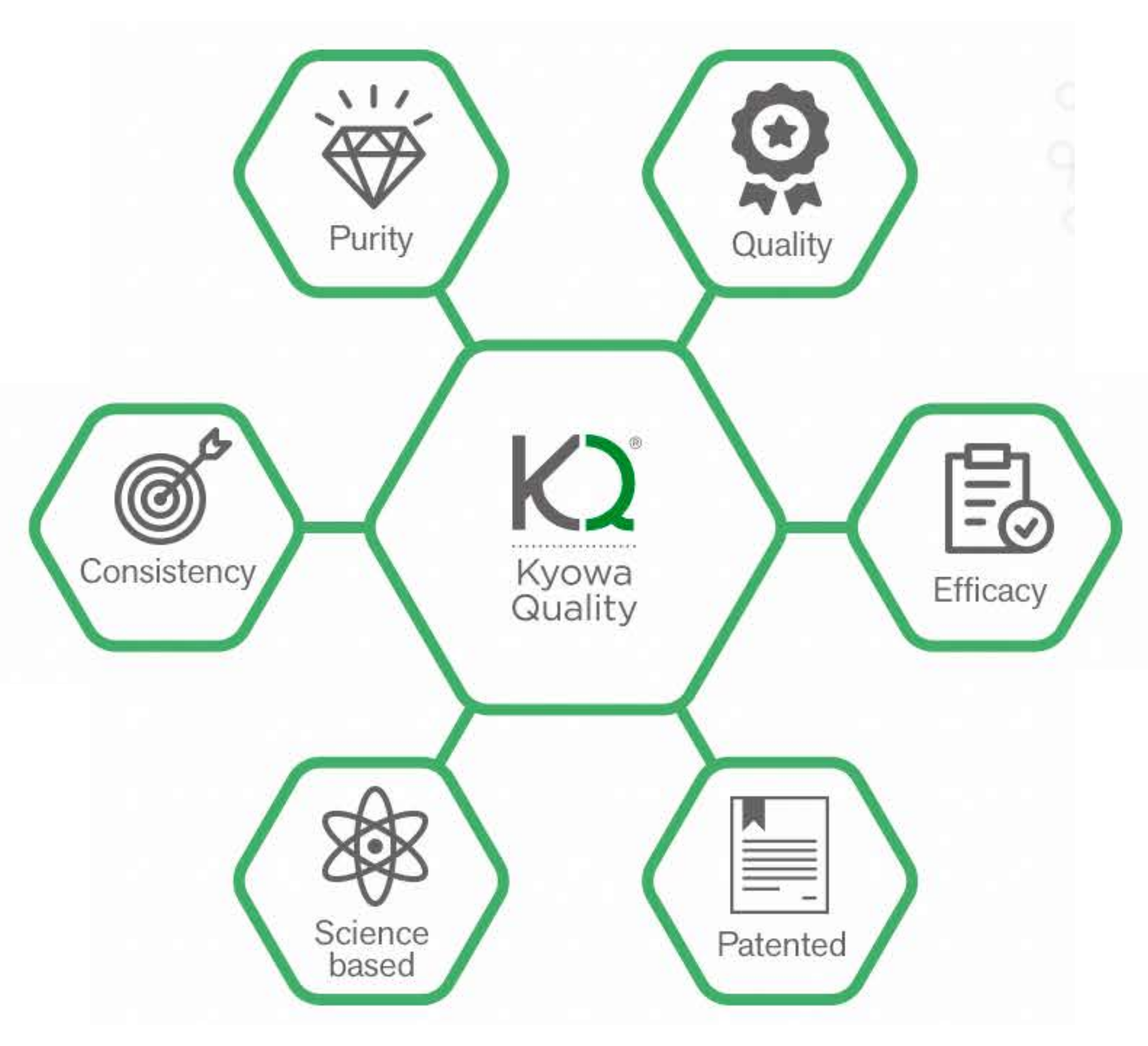


Comments and Discussion (Powered by the PricePlow Forum)